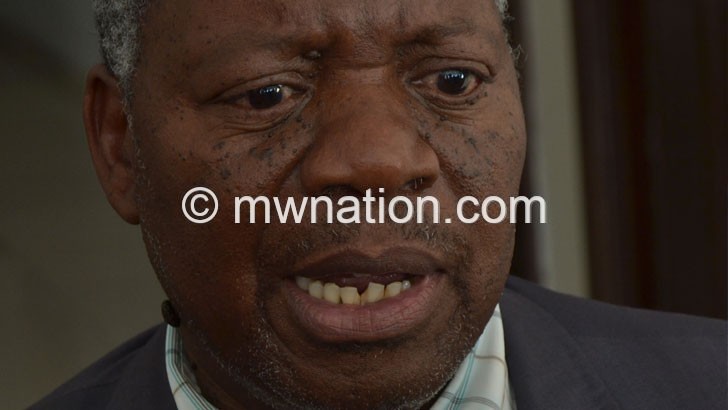Elections not credible—PAC
Public Affairs Committee (PAC), a quasi-religious body formed in 1992 during the country’s political transition from one-party to multiparty democracy, has discredited the May 21 Tripartite Elections, stating that the results “lack credibility”.
PAC gave its position during a news conference in Blantyre addressed by its chairperson the Very Reverend Felix Chingota who accused Malawi Electoral Commission (MEC) of messing up the results management system.

He said: “Initially, we [PAC] were impressed by how MEC was handling the process until the processing of results started.
“The admission by MEC chairperson Justice Jane Ansah that the commission accepted results with alterations and erasions speak volumes of how much the process was flawed.
“We know that more than the 147 complaints mentioned were lodged, but were not fully resolved. For this reason, many people feel that justice has been ignored and that institutions involved in the electoral process have failed to give the truth and justice a chance.”
PAC’s sentiments are in sharp contrast to conclusions by Ansah, Malawi Electoral Support Network (Mesn) and several international observer missions that the elections were free and fair.
International observer missions, including Commonwealth, the European Union (EU), the African Union (AU) and the Southern African Development Community (Sadc), in their preliminary statements, declared that the elections provided Malawians an opportunity to elect leaders at different levels of government.
On the other hand, Mesn, which undertook a parallel vote tabulation (PVT) facility, also expressed satisfaction with how MEC managed the electoral process.
Ironically, the governing DPP has more parliamentary seats having amassed 62 followed by the MCP with 55 the same number for independent members of Parliament (MPs) while the United Democratic Front (UDF) secured 10 seats, Peoples Party (PP) got five, UTM Party won four seats and Alliance for Democracy (Aford) has one seat.
In a telephone interview yesterday, Ansah, who is a judge of the Malawi Supreme Court of Appeal and described the electoral process as “free and fair” and that the results were a “true reflection of the will of the people of Malawi”, said her commission was not ready to respond to PAC’s concerns as they were not directed to the electoral body.
She said: “People are entitled to their opinions about the outcome. But we cannot be responding to each and everyone who raises concerns.
“There are a lot of stakeholders who have produced their reports, including international observers.”
Ansah said MEC will in due course convene a post-mortem meeting for the elections that ushered in President Peter Mutharika for a second five-year term of office, 192 legislators in the 193-seat Parliament and 460 ward councillors.
MEC announced the results hours after the High Court lifted an injunction obtained by Malawi Congress Party (MCP) that restricted the electoral body from announcing the winner of the presidential race until alleged discrepancies in some districts were addressed. The party sought a recount of votes in 10 of the country’s 28 districts.
During briefing sessions where MEC gave updates on the electoral process, Ansah acknowledged receiving 147 queries questioning the results.
Reacting to PAC’s position and Ansah’s response that MEC would not respond, Ernest Thindwa, a political analyst based at University of Malawi’s Chancellor College, accused the electoral body of not being receptive to criticism.
He said: “MEC should have appreciated the concerns being raised and, as a starting point, propose for the change of the law which calls for the announcement of results within eight days of voting.”
In its summary, the AU Election Observation Mission stated that: “The elections took place in a peaceful environment and at the time of this statement, the mission had not noted any serious concerns with the process, either witnessed or observed.”
But the Commonwealth Observer Mission said it noted some inconsistencies in the electoral process.
Reads the mission’s report: “We also observed that there were inconsistent interpretations of what constituted a null or void vote, though these were clearly set out in the polling procedures.”
During the briefing, Chingota, who acknowledged the winners and wished them well, said it was critical that MEC should have resolved the queries raised before announcing the results.
He said PAC attempted to seek an audience with MEC to verify the alleged irregularities prior to announcement of the results, but the electoral body was not forthcoming.
Chingota also said PAC condemns the violence that erupted in some parts of the country, especially in the Central Region in protest against the results, saying dialogue should be prioritised instead.
He added that the highlighted shortfalls should trigger renewed advocacy for electoral reforms which Parliament rejected in 2017.





